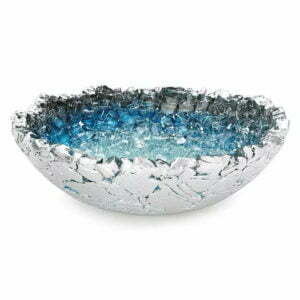Nicotinamide adenine dinucleotide is an essential coenzyme found in all living cells that play an important role in human biology and health. NAD is responsible for a variety of metabolic processes, including the utilization of energy from food, gene expression, and the repair of damaged DNA. In this article, we will discuss the role of NAD in human biology and health. Keep reading to learn more about what is nicotinamide adenine dinucleotide?
What is NAD responsible for in the body?

NAD plays a vital role in metabolism, providing energy for the body to use and helping convert food into usable energy. The NAD molecule consists of two molecules of adenosine monophosphate (AMP) connected by two phosphate groups. This structure enables it to transfer hydrogen atoms from one enzyme to another, which helps facilitate metabolic processes such as glycolysis and fatty acid oxidation.
In human biology and health, NAD is involved in many essential functions. The importance of the NAD molecule cannot be overstated. It’s involved in many critical cellular processes, including gene expression, redox reactions, carbohydrate and lipid metabolism, and immune function. One of the critical functions of NAD is to support the body’s natural antioxidant defenses. Glutathione is a crucial antioxidant compound produced by cells, and NAD helps maintain optimal glutathione levels. This is important because free radicals cause oxidative damage. By supporting optimal glutathione levels, NAD helps protect cells from damage and inflammation.
NAD is an essential chemical for human life that maintains healthy metabolic activity throughout our bodies through its involvement in numerous biochemical pathways and reactions within us all. Without this molecule, we would be unable to utilize vitamins or turn food into fuel necessary for survival.
What is the role of NAD in ATP?
Nicotinamide adenine dinucleotide is involved in redox reactions and is a substrate for enzymes that add or remove hydrogen atoms from other molecules. NAD is an essential component of the electron transport chain, the series of reactions that produces energy in the cell. NADH, the reduced form of NAD, is a critical participant in the chain. It donates electrons to other molecules, helping to create a gradient that drives the production of ATP, the cell’s primary energy currency. In addition to its role in the electron transport chain, NAD is also involved in other cellular processes, including DNA repair, cell signaling, and apoptosis.
How can you increase NAD levels in the body?

While NAD levels can naturally decline with age, there are several ways that people can work to increase them for optimal health.
First, consuming adequate amounts of vitamin B3, also known as niacin, is essential for maintaining healthy NAD levels. Vitamin B3 works by converting into its active form—nicotinamide mononucleotide (NMN)—which then gets converted into NAD in the liver and other tissues. Including foods like fish, poultry, beef liver, mushrooms, avocados, and nuts in your diet may help to boost your body’s natural stores of NAD. Additionally, supplementing with vitamin B3 has been shown to be effective at raising human plasma concentrations of NMN, leading to increased production of NAD throughout the body. However, it’s crucial to always consult your doctor before consuming any supplements.
Regular exercise is also a great way to promote increased NAD levels within your system as rigorous physical activity stimulates the synthesis and release of this potent molecule from muscle tissue into circulation, where it can act on other organs such as the brain or heart if needed.
Overall, nicotinamide adenine dinucleotide plays a vital role in human biology and health by acting as a coenzyme in various metabolic pathways. NAD is essential in energy production, DNA repair, and maintenance and serves as a key regulator of cell signaling pathways. It’s essential for maintaining normal physiological functions in the human body.









